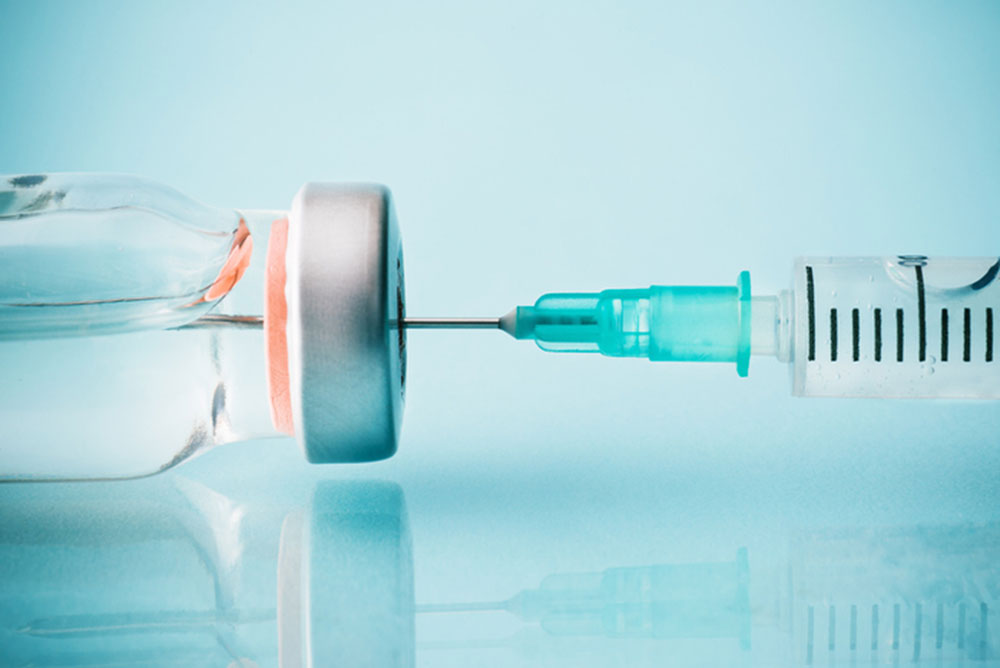
iStock
By Mary Carpenter
TO GET or not to get a fourth Covid vaccine as an additional booster is the question, first sparked by the pharmaceutical companies’ headlines-grabbing announcements of their applications for approval to add another shot. Soon afterwards came many “recommendations” and “authorizations,” most recently from the FDA, saying that people over 50 and those who are immunocompromised are eligible for a fourth shot, although FDA advisors will not weigh in officially until a meeting scheduled for April 6.
What this tangle of official communiqués has done is shift the burden onto individuals to make their own decisions —based on health status, worries and personal goals, according to Washington Post contributing columnist Leana Wen. Many are getting a fourth shot because of upcoming plans to socialize or travel, or specific fears about long-lasting Covid symptoms.
Among reasons to wait on getting the fourth shot are hopes that newly formulated mRNA vaccines in the works will better protect against recent omicron variants. Also, some worry that the body’s immune system responds less well to every additional booster or when shots are too close together to allow for build-up of immunity between each one. In addition, many fear future Covid surges that are likely to occur in late summer or early fall—making it smarter to schedule additional boosters closer to that time.
“If you’re more than five or six months out from your last booster, and you’re at high to very high risk, the obvious choice is to get the shot,” said Dr. Robert Wachter, chair of the Department of Medicine at the University of California, San Francisco. “As a healthy 64-year-old man whose third shot was seven months ago, I will get one this week if I can.”
Before the latest flurry of advisories, the recommendation for deciding when to take extra-protective measures was to keep track of local infection levels. The new government website Covid.gov —which evaluates risks by county from “low” to “medium” to “high” based on whether levels put a strain on local health services—lists the greater DC area numbers as “low.” But the New York Times data site at the end of last week concluded for DC alone that “cases have increased recently and are very high”—albeit also noting low rates on measures, such as test positivity.
Newly formulated bespoke vaccines against recent variants, although at first expected to be ready by this month, have in animal research provided “little advantage over standard jabs” and are now on the schedule for late summer. While studies to date have been small, researchers say they “offer early hints that a single dose of a customized vaccine won’t change the game against Omicron.”
As for risks that too many boosters, or giving boosters too close together, could diminish the vaccines’ effectiveness, reports from Israel show that a fourth shot boosts immunity back up to levels seen in months following the third shot. The worry about giving boosters too close together seems mostly theoretical in the absence of clinical studies documenting such an effect.
“If the goal of vaccination is to prevent hospitalization and death, the vaccine plus one booster should be sufficient,” writes Wen; but if the goal is “to reduce any infection from Covid-19, it’s more complicated.”
Many of the worries about any infection concern the risk of lingering Covid symptoms. Even among those with asymptomatic Covid, as many as one-third have reported problems linked to “Long Covid” (officially diagnosed at least three months after the original infection) that range from intense fatigue to brain fog. And a new issue comes from recent research, which included patients with “less severe infection,” showing that Covid may shrink the brain’s gray matter in areas linked to memory processing and smell.
Tissue loss and damage seen in the study participants was “above and beyond” the structural brain changes that normally occur with age, according to Texas A&M neuroscientist Jessica Bernard, who was not involved in the study. The research involved the U.K biobank—which has collected brain-scan images from more than 45,000 U.K. residents, providing before- and after-infection imaging for study participants; it included 401 people who showed signs of prior Covid infection and 384 who had not had Covid but were appropriately matched in terms of age, sex and Covid risk factors.
Among the study’s limitations was the absence of documentation of specific Covid symptoms. For patients who lost their sense of smell, for example, infection in cells close to olfactory neurons could have directly caused shrinkage in brain regions related to smell. Alternatively, the infection could have diminished the signals to brain regions involved in smell, which resulted in atrophy.
For anyone opting out of a fourth shot, the risk of serious infection is becoming lower with increased availability of antiviral treatment—medications including Paxlovid developed by Pfizer and Molnupiravir by Merck; as well as the intravenous antiviral medication Remdesivir. And with the recent government “test-to-treat” initiative, more pharmacies and clinics are offering immediate treatment to anyone getting positive Covid test results. Eligibility criteria, on the other hand, limit antiviral prescriptions to people who have symptoms of Covid— and to within a few days of the onset of those symptoms.
Before deciding, I considered the advantages of waiting for a bespoke vaccine—and maybe also until late summer—for better chances of having a targeted and better-timed immune effect— or at least for FDA advisors to recommend the additional jab. In the end, though, I signed up for the extra booster, spurred by personal decisions from experts like Wachter at UCSF and because I worry about Covid’s effects on the brain, both the newly reported shrinkage and long-Covid symptoms. In addition, by the end of last week, the New York Times was reporting “a rapid increase in levels of the BA.2 subvariant in the Northeast.”
—Mary Carpenter is keeping us in the loop about latest news on the Covid-19 front.
